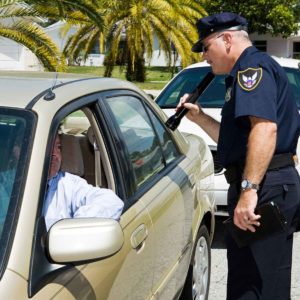
In Georgia’s continuing push to make itself as business and tech friendly as possible, the legislature this year passed a pair of laws that create the legal framework for self-driving cars. First off, they won’t be self-driving cars. Instead, they will formally be called “fully autonomous vehicles.” And for a car to fall into this new category, it must have “the capability to perform all aspects of the dynamic driving task;” and, when operating in its fully automated mode, must not “at any time request that a driver assume any portion of the dynamic driving task.” All self-driving cars must also have a “minimal risk condition” which means that if it detects a problem with its ability to operate, the car must be able to stop driving in some reasonably safe way.
THE UPSHOT
Apart from actually having a self-driving car, the best part of owning one under the new laws just might be that you don’t need a license to operate one. O.C.G.A. § 40-5-21, Georgia’s traffic code, creates exemptions to the driver’s license requirement and the legislature added a new exemption for the “operator of a fully autonomous vehicle with the automated driving system engaged.” This might be a massive help to parents with teenagers who don’t have licenses yet, anyone dreading a conversation with an elderly family member about their driving, or those with medical condition preventing them from driving.
THE CHANGES
Additionally, these bills make some tweaks to Georgia’s criminal driving laws to head off some problems with driverless cars on the roads. Following Too Closely is a very broad statute that basically makes it illegal to hit someone from behind. [Consult an attorney for exceptions] However, if you are in a fully autonomous vehicle, that might change. If your car was part of a “platoon” where it was coordinating its speed with the car in front of it and an accident occurs, then the Following Too Closely statute won’t apply to you, or more appropriately, your car. Basically, if your car was being told how fast to go and it rear ended the car that was telling it how fast to go, it isn’t your car’s fault. Another tweak was to the five Hit and Run statutes. The idea is that if your car hits someone or something and your car stays on scene then the owner of that car can’t be held criminally responsible for not being there.
THE DOWNSIDE
Lastly, the legislature decided that they don’t trust these cars just yet because the insurance requirements are steep. Until 2020 the owner of a fully autonomous vehicle must maintain 2 ½ times the required insurance coverage for limousines, which, for a sub-twelve-person-capacity limo is currently $300,000. However, after 2020 you only have to carry the minimum limousine coverage without the multiplier.
CONCLUSION
So there you go, if you have a self-driving car you don’t need a license but you probably still need a job to afford the insurance. I’m glad Georgia is open to this new technology and getting ahead of some of the legal hurdles coming along with them. However, these bills are a first step in sorting out the tricky legal questions where autonomous or semi-autonomous cars come into conflict with the laws as written. It is always a good idea to have an attorney review your case for possible defenses but especially so if you are literally riding on the leading edge of this technology.











